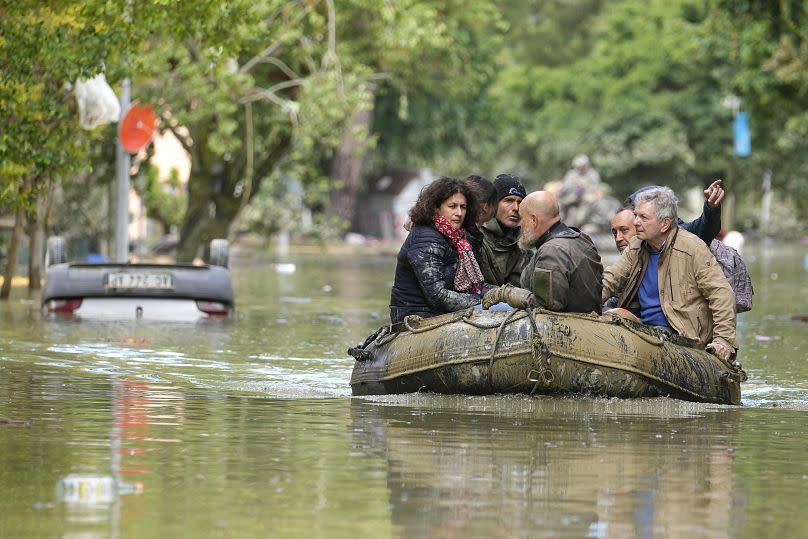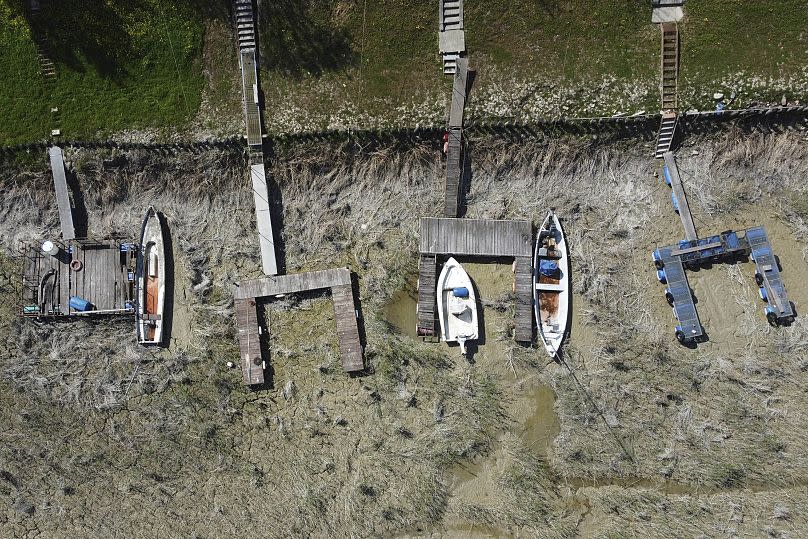Climate experts warn extreme floods unlikely to solve drought problem across Europe
The exceptional wave of rain that's been hitting Europe will do little to reduce the impact of a dry summer across the continent.
In recent weeks, flash floods struck Croatia, Serbia and Italy in particular. But experts have told Euronews these large amounts of water were unlikely to make the soil more fertile.
"Although it feels that there's been a lot of rains in these regions, it may not actually impact the drought that we've seen", Samantha Burgess from Deputy Director of the Copernicus Climate Change Service said.
"Because all of that water isn't soaking in, and it's running off very quickly.
"In a drought situation, there is no soil moisture left in the top surface, so the ground is very hard. And when the ground is very hard, the rain, instead of recharging water reservoirs and rivers, just runs straight off the land surface and leads to these catastrophic flooding events."

Experts said over the last decade the concept of drought has changed from the typical idea of "slower onset drought" to "flash drought".
"Flash droughts start much more rapidly," Justin Sheffield, head of Geography and Environmental Science at University of Southampton, said.
"That's why we have perhaps bigger impacts at least in the short term.
"And they evolve rapidly because there are sudden deficits in rainfall but also they are often accompanied by high temperatures that rapidly deplete the moisture in the soil for a vapour transpiration."

Although it is still hard to predict how severe the drought will be this summer, there are already simple steps that can be taken to save water.
"It means choosing foods and crops that need less water, but also adapting our behaviour to use as little water as possible, washing less, turning off taps, and taking shorter showers," Burgess told Euronews.
Violent transitions between extremely dry and rainy weather have sparked debates about Europe's weather becoming more "tropical".

 Yahoo News
Yahoo News 
